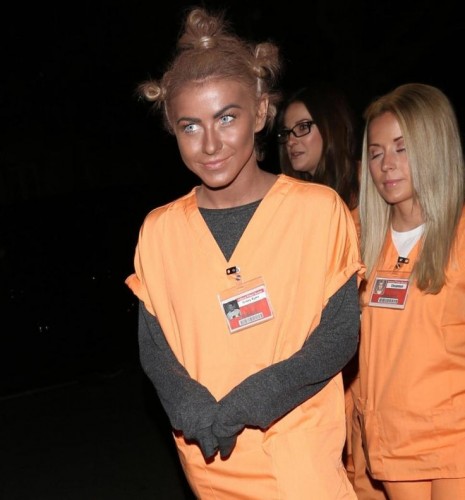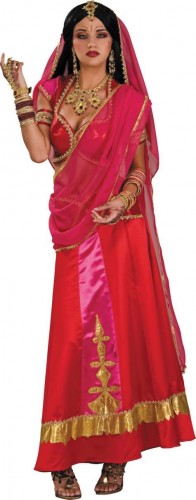
It is undeniable, Halloween has always been my favorite holiday. I’ve always indulged in anything macabre, spawning a love for horror movies, television and books, throughout my late teens, which has propelled me to want to become a desi Morticia Addams (imagine a 1980s Rekha, dressed in all black).
However, no amount of Stephen King fueled movie marathons could prepare me for one of adult Halloween’s most horrific aspects: costumes.
By now, I’m sure many people have seen the rampant sexism in costume choices between men and women, and that Halloween companies will turn anything, relevant or not, into a costume for the sake of making some cash (hello, Sexy Pizza Rat).

In my personal experience, people wearing these types of costumes use one of two excuses when questioned about them:
1. This excuse is used by a girl I briefly spoke to at a Halloween party last year, this conversation served as an example of clear-cut ignorance.
- She stated honestly that she had no idea that her Pocahontas costume, complete with full war bonnet and moccasins, was actually offensive.
- In light of this, I believe that education is the best way to combat ignorance and was happy to explain to her that Pocahontas was an 18-year-old victim of kidnapping, rather than the statuesque supermodel that Disney depicts her as.
- The girl, whether genuinely thankful or otherwise, hugged me for far too long and thanked me for helping her.
2. The second excuse is much harder to tolerate.
- In essence, the only other reason people choose to don these offensive costumes is to toe the line between parody and flagrant racism.
- The people who use this excuse, are usually in full knowledge that they are, in fact, being disrespectful.
- This indicates a far more detrimental attitude about toward the struggles that many people of color have to face.

These microaggressions, are often accompanied by comments meant to displace anger such as “Its just a joke,” which often reveal the lack of empathy and insensitivity that non-people of color have towards situations regarding race.
We, as People of Color, have a right to be upset and offended when someone dresses like a “Bollywood Beauty.”

Whereas, our communities and cultures are diverse, thriving and deserving of respect.
Subsequently, many people of color also have a hard time finding a Halloween costumes as well. As a group, especially those in the cosplay community, are forced to deal with unnecessary comments regarding their choice of dress.
I have received many responses to the question “What should I be for Halloween?” most people suggest: “Princess Jasmine!” (If this has happened to you, please tell me about it in the comments below.)
In the United States’ version of the television show “The Office,” Indian employee Kelly Kapoor (played by the queen Mindy Kaling) dresses as Dorothy and faces an uncomfortable situation in which her boss, Michael Scott, tells her it would have been funnier if she had come in with a soccer ball and jersey, so she could be like the main character of the film “Bend it like Beckham.”
Obviously within the context of the show, Michael’s ridiculous actions are something to be laughed at, but when it happens in real life it is ostracizing and uncomfortable.
Halloween is a time for humor, sugar, and the prospect of meeting someone cute dressed as your favorite character from “Game of Thrones.”
To say the least, making people feel uncomfortable and unsafe in order to get a few laughs by dressing as a stereotype of another race is a microaggression that can be easily avoided.
So please, put away your sexy Geisha costumes and dress up as a cat for the 35th time, because no culture deserves to be ridiculed and caricatured just so you can get some cute photos for Instagram.
 Maeher Grewal is a 19-year-old Indian-American floating orb, who thinks other people will want to hear what she has to say. You can follow her on Twitter and Instagram, because she needs street cred to back her up.
Maeher Grewal is a 19-year-old Indian-American floating orb, who thinks other people will want to hear what she has to say. You can follow her on Twitter and Instagram, because she needs street cred to back her up.




